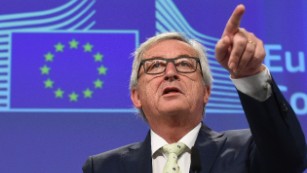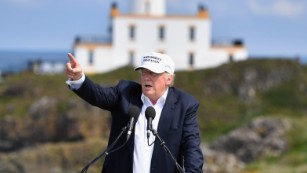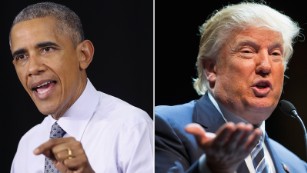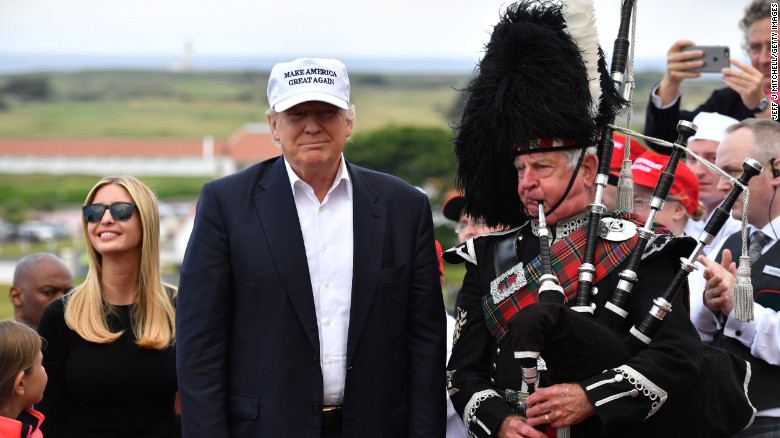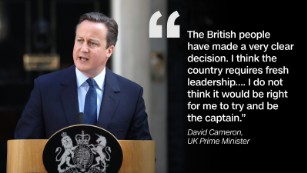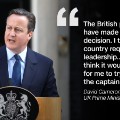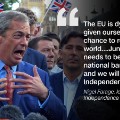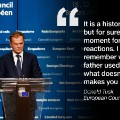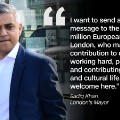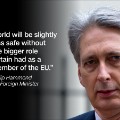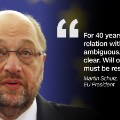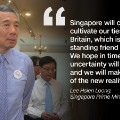from bbc.com:~~~~~~~
EU referendum: Do Europeans still feel welcome in the UK?
- 26 June 2016
- From the section EU Referendum
The UK has decided
to leave the European Union, yet it will be some time before the
consequences of this decision are clear. Against the backdrop of
uncertainty, ferries continue to arrive at the Port of Dover bringing
travellers from abroad.
It was an aggressive referendum campaign
which saw the topic of immigration fiercely debated amid allegations of
xenophobia and racism.On holiday to the UK in the aftermath of all this, Jani and Mari Parkkali from Finland could be forgiven for wondering if they would feel tension.
"We were a little worried there might be a problem with the local people but it has been fine," Jani said, sounding relieved.
"We have been made to feel very welcome - the people have been very friendly."
"Finnish people are very cautious," she said.
"After this result, I think, when weighing up where to go they might well choose somewhere else now, such as Germany over England."
Brexit sympathy
He said freedom of movement was very important to him but he sympathised with British people who want to leave the EU.
"I would too. If I was the Spanish government I would get out now - too much bureaucracy, people you haven't elected telling you what to do. That's stupid." he said.
He too said he felt welcome, although he added: "There is some xenophobia. I have suffered it. There is a bit of racism in England, yes."
But he was defiant: "It doesn't worry me. I don't care. I like the British people.
"In Spain we have twice as much immigration but we don't even talk about it. We have two million of you and you have 200,000 of us here. So who is the immigrant?"
Increasing the hurdles
Flora Auth and Zoltan Palfy, from Hungary, have been in the UK since September.Ms Auth said if there were any negative feelings towards foreigners they had not felt it at all.
"People have been so kind to us," she said.
"It will just be like visiting Switzerland or Norway or anywhere else where you have to ask permission to visit or stay. It won't be a problem," he said.
However, professor Richard Tol of Sussex University said travellers simply "don't understand the consequences".
"It will hit them once the regulations change," he said.
"People are afraid of filling out forms. By increasing the hurdles that people must jump through to get here, they will simply choose to go somewhere else.
"That will definitely have a negative impact on numbers," he predicted.
He said the fallen pound would make the UK cheaper and more attractive, but labour costs would go up as low-skilled immigrants are "thrown out", increasing the cost of holidays.
In a statement, the British tourist authority Visit Britain unsurprisingly offered a "warm welcome to our many European visitors".
It said it was anticipating a strong summer holiday season.
DESIDERATA: I was watching mainly the CNN and BBC news channels even as the greatest "SESISMIC" event since WWII unfolded; so let's get BBC reportage for a Final Look, OK wit' Thee?!-- YL, Desi
Brexit: EU spells out procedure for UK to leave
- 26 June 2016
- From the section Europe
The European Union
has clarified the way the UK can kickstart formal negotiations to exit
the bloc following Thursday's referendum.
It says Britain can
trigger Article 50, which sets a two-year deadline for a deal, by making
a formal declaration either in a letter or a speech.UK PM David Cameron has said he will step down by October to allow his successor to conduct the talks.
But EU foreign ministers have urged Britain to start the process soon.
Since Thursday's vote there has been intense speculation about when, and how, the UK might begin formal negotiations.
A spokesman for the European Council, which defines the EU's political direction and priorities, reiterated on Saturday that triggering Article 50 was a formal act which must be "done by the British government to the European Council".
"It has to be done in an unequivocal manner with the explicit intent to trigger Article 50," the spokesman said.
"It could either be a letter to the president of the European Council or an official statement at a meeting of the European Council duly noted in the official records of the meeting."
- Live: Latest developments
- Brexit: All you need to know
- What happens next?
- Europe's press gripped by Brexit drama
- Soros warns of EU disintegration
- Can the EU save itself?
She said that deterring other countries from leaving the EU should not be a priority in the talks.
Mrs Merkel added that she was not in favour of pushing for a speedy withdrawal.
In other developments:
- UK Labour leader Jeremy Corbyn, facing a no-confidence vote following the referendum, has sacked shadow foreign secretary Hilary Benn
- Scotland's First Minister Nicola Sturgeon says she will seek "immediate discussions" with Brussels to "protect Scotland's place in the EU"
- A petition calling for a second referendum on UK's membership of the EU has gained more than two million signatures
- There are warnings British financial institutions could lose their prized access to the EU if the UK leaves the single market
- Britain's European Commissioner, Lord Hill, who oversees financial services, is to resign
"This process should get under way as soon as possible so that we are not left in limbo but rather can concentrate on the future of Europe," German Foreign Minister Frank-Walter Steinmeier said.
His Dutch counterpart Bert Koenders said the continent could not accept a political vacuum, saying "this will not be business as usual".
"I understand it is very difficult for Prime Minister Cameron, who was against leaving the European Union, to now go ahead and do this," he told the BBC World Service's Newshour programme.
"I think we should give them time; let them decide how quickly they want to do it."
He described Britain's exit from the bloc as "a disaster" saying Estonia had often aligned itself with the UK and had counted on Britain to present their shared views.
The UK's decision to leave the EU has sent shockwaves across the continent with leaders of Eurosceptic parties in France, the Netherlands and Italy demanding referendums in their own countries.
New road map
In response, some EU politicians have called for speedy reforms to quell further unrest.French economy minister Emmanuel Macron suggested a new mission statement should be drafted and put to a referendum of all EU citizens.
"We've never had the courage to organise a true European referendum in its real sense," he told a conference.
"We would first build this new project with European peoples and then submit this new road map, this new project, to a referendum [across the bloc]."
The first summit of EU leaders with no British representation will be held on Wednesday, a day after Mr Cameron holds talks with members.
Global stock markets and the pound fell heavily on the news of the so-called "Brexit", while credit rating agency Moody's cut the UK's outlook to "negative".
What comes next?
What is Article 50 of the EU Treaty?
- In force since 2009 but never tested
- Allows governments to notify intent to leave. Talks then begin on a range of issues between the leaving nation and other EU members
- If no deal is reached, membership will automatically cease two years after notification
- The article is only a basic template for leaving, settling the date and some other matters. It does not automatically include issues such as movement of people or trade. The latter could take years to conclude



